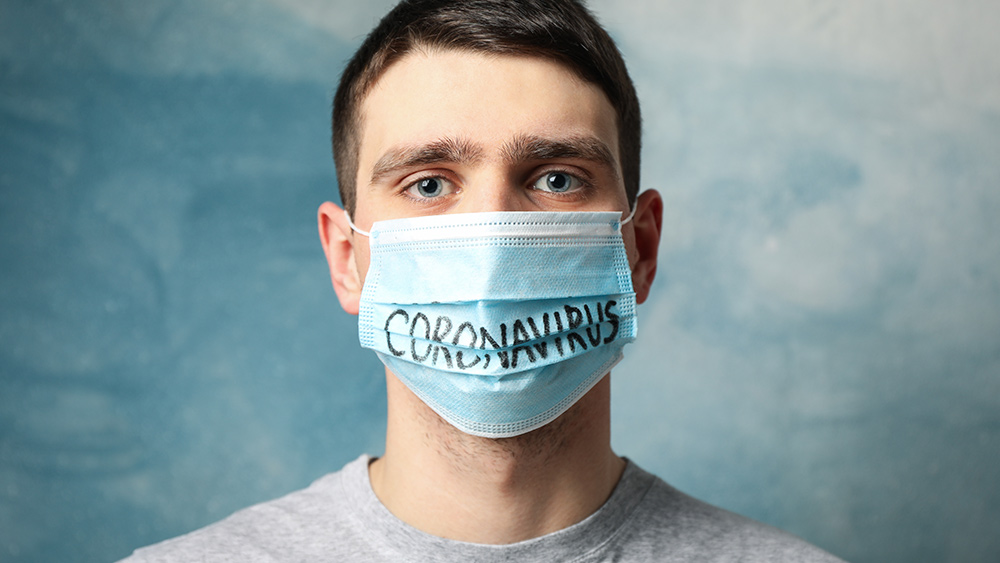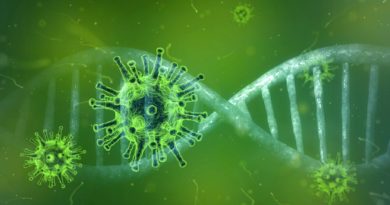Study: Millions of COVID-19 survivors suffer long-term issues with smell and taste

Around five percent of the world’s population who survive a bout with Wuhan coronavirus (COVID-19) infection report smell and taste problems after six months, according to a study.
The July 27 study published in BMJ scrutinized 18 earlier studies that touched on post-infection smell and taste loss across all demographic groups worldwide. The study authors from Italy found that some 27 million people were estimated to suffer from olfactory dysfunction – a long-term loss of smell or taste.
Of the 3,699 patients examined by the 18 studies, they found that an estimated 5.6 percent of COVID-19 survivors had smell issues for at least six months. They also found that 4.4 percent had an altered taste.
“Women are especially affected by persistent smell dysfunction, along with patients with greater initial severity of smell loss and those with nasal congestion,” the authors wrote. They cited the example of a female patient who has yet to recover her sense of smell, even though it has been more than 27 months since she first contracted COVID-19.
The study authors also mentioned the condition called parosmia, which has been linked to COVID-19.
“Parosmia transforms a pleasant odor into an unpleasant one. Daily activities such as smelling coffee and sensing the flavor of food can become disgusting and emotionally distressing,” they wrote.
“Loss of smell and taste adversely affects the quality of life by depriving those affected of several everyday pleasures and social bonds. People can also experience anorexia, food aversions, malnutrition, anxiety, and depression.”
Paolo Boscolo-Rizzo, the study author from the University of Trieste in Italy, wrote in an editorial that given the 550 million COVID-19 cases worldwide reported as of July, large numbers of patients will be seeking care for these disabling morbidities.
Stanford University rhinologist Dr. Zara Patel agreed with Boscolo-Rizzo, telling NBC News that the millions afflicted with decreased olfactory function “may simply be a new public health crisis.” She added that one “could track the pandemic across the globe” by analyzing Google search results about COVID-related loss of smell.
NIH study debunks long COVID as simply anxiety
The long-term diminished sense of smell and taste among most who survive a bout of COVID-19 has been linked to what medical experts dub as “long COVID,” or post-acute sequelae of SARS-CoV-2 infection (PASC).
However, a study conducted by the National Institutes of Health (NIH) casts doubt on the existence of PASC. It raised questions about the condition and suggested that those who claim to be suffering from it months or even years post-infection are likely suffering from anxiety to begin with.
The NIH study published in Annals of Internal Medicine, said there was no evidence of long-term COVID-19 infection in patients who were removed from the onset of symptoms six weeks and beyond, even if they were reporting health issues. It also found that most individuals who reported having PASC were disproportionately women and people who have a history of anxiety disorders.
Study participants were administered physical examinations, laboratory tests and questionnaires, cognitive tests and a cardiopulmonary evaluation. The analysts concluded that most cases had no identifiable cause of the PASC symptoms.
The NIH’s study ignited debates about whether PASC is a legitimate physical ailment or more of a psychological disorder that persists after recovering from the virus. The determination of what kind of health issue this is could best address the patients’ suffering.
Some analysts are skeptical that long COVID-19 is just being used as a reason for governments and health authorities to impose and push vaccine mandates and other health protocols like wearing facial masks and reviving lockdowns for business interests. (Related: “Long Covid” is Fauci’s code phrase for long-term vaccine damage.)
Visit Pandemic.news for more updates on COVID-19 and its effect on people’s health and mental conditions.
Watch the below video that talks about ending long covid tyranny.
This video is from the Patrick Coffin Show channel on Brighteon.com.
More related stories:
Depressed mood, anxiety may also be symptoms of coronavirus infection – study.
Unheard of side effect: WHO hides hearing loss as an adverse effect of COVID-19 vaccines.
Some COVID-19 patients still can’t smell after a year, while others experience distorted smells.
Sources include:
<!–
–>
This article has been archived for your research. The original version from Natural News can be found here.



